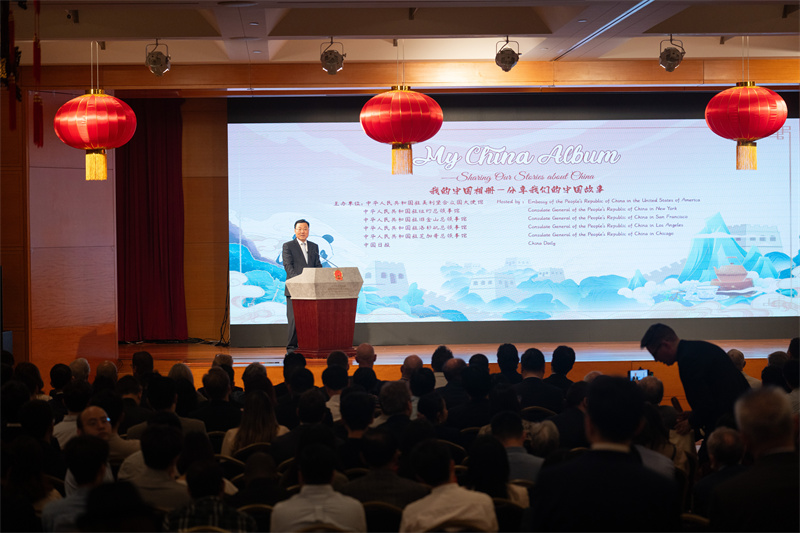On May 16, 2024, the Chinese Embassy in the United States held the “My China Album” award ceremony and face-to-face story sharing event where Ambassador Xie Feng delivered a speech.
Ambassador Xie Feng said that this year is the election year in the United States, and non-interference in internal affairs is a tradition of Chinese diplomacy. China will not intervene in the U.S. elections, and at the same time, firmly opposes the U.S. manipulating China-related issues, harming China’s interests, and consuming China-U.S. relations during the election year. The U.S. should exclude domestic political interference and stop creating new obstacles for China-U.S. relations, he said.
Ambassador Xie pointed out that the U.S. has abused Section 301 in the tariff review process, further increasing tariffs on electric vehicles, lithium batteries, photovoltaic cells, critical minerals, semiconductors, and other products imported from China.
Under the guise of fair competition, the U.S. is engaging in protectionism, Xie said. The real purpose is to suppress China’s new energy industries, restrain China’s high-quality development, and seek votes by competing to confront China, he added.
After six years of the U.S.-China trade war, the U.S. trade deficit with China has not decreased but increased by $200 billion, exacerbating inflation and ultimately hurting American consumers and businesses, as well as undermining the international economic and trade order, Xie said.
The Ambassador emphasized that the notion of “China’s overcapacity” is a false proposition. Comparative advantage is a basic principle of economics, he said. Under the conditions of an open market economy, countries play to their comparative advantages, form different international industrial divisions of labor, and engage in international trade for mutual benefit.
China’s new energy products are widely welcomed, relying on sustained technological innovation, an integrated production and supply chain system, and full market competition, all achieved through the hard work of the Chinese people.
Against the backdrop of global green transformation, China’s “new three items,” represented by new energy vehicles, are all scarce and high-quality capacities. They not only meet the demand of the Chinese market but also fill the global gap in supply and demand for new energy, making significant contributions to global energy conservation, emission reduction, and carbon reduction. Why suppress such high-quality capacities that benefit everyone?

 CGTN America
CGTN America
